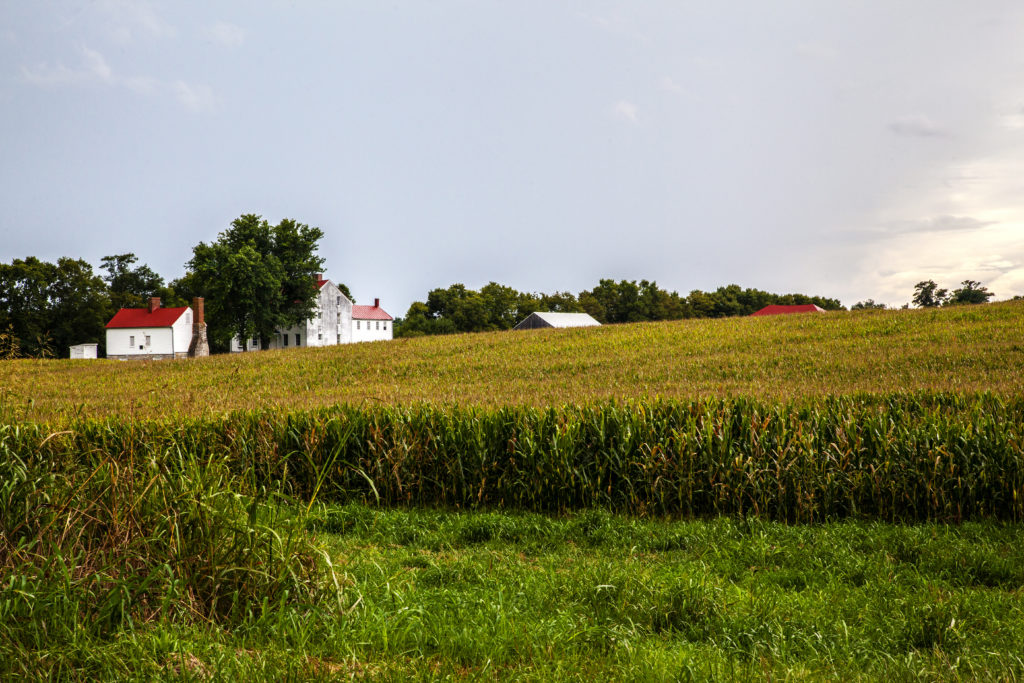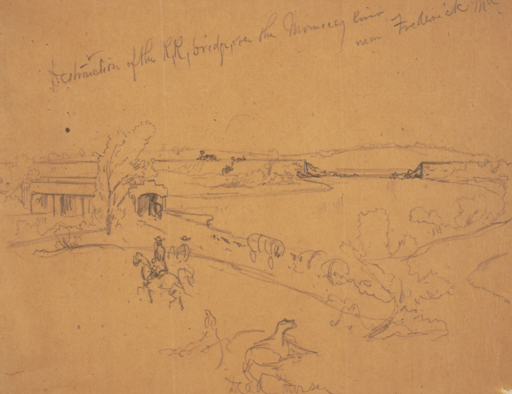
On July 9, 1864, Union Maj. Gen. Lew Wallace met Confederate Lt. Gen. Jubal A. Early on the banks of the Monocacy River, just south of Frederick, Maryland. The day-long battle that transpired is today known as the battle that saved Washington, D.C. BGES will be delving into the nuts and bolts of this important battle on a one-day tour, “The Brilliant Little Battle of Monocacy,” slated for October 5, 2019. We caught up with the tour leader, historian Gloria Swift, to ask a few questions about this fascinating slice of the Civil War.
BGES Blog: Give us the ten-cent description of what your tour will cover.
Gloria Swift: The tour will begin with an overall view of the progress of the war by the end of June 1864. We will also cover a brief look at the political situation in the North, which was an important factor in this campaign. From there we will review Confederate Gen. Robert E. Lee’s strategy for sending roughly one-third of his army on a very bold and daring third invasion into the North at a time he was almost surrounded by the Union Army near Petersburg Virginia and facing tremendous odds. Of course, we will also be touring the battlefield itself and getting out to experience the ground and terrain as we talk about the ebb and flow of the battle.
BGES Blog: How exactly did this little battle save Washington, considering it was a Confederate victory?
Gloria Swift: I would not exactly call Monocacy a clear Confederate victory, but yes, they held the field at the end of the day. But,by having to take the time to do battle, the Confederates actually lost something important—precious time. That time is what gave U.S. Grant the opportunity to get troops back to the defenses of Washington (he had pulled most of the defense troops for his campaign south, leaving Washington lightly defended) just as the Confederates were arriving at the door of the city. Had the battle not occurred, the Confederates would have arrived earlier and walked right into Washington. Would they have held the city? No, but they certainly could have done damage, both physically and politically.

BGES Blog: Gen. Lew Wallace was blamed for the Union loss at Shiloh and cast aside by Grant. And yet he appears to be the star of the show here. What exactly did he do?
Gloria Swift: LOL! I can’t give away the entire story here! You’ll have to come on the tour to find out! But what was important about Wallace here for Monocacy is that he took the initiative to prevent a Union disaster. He was stationed in Baltimore, as commander of the Middle Military Department and the 8thAmy Corps. The B&O Railroad President John Garrett (also in Baltimore) had tried to tell Halleck in Washington and through him, General Grant, of the Confederate movement north through the Shenandoah Valley, but they ignored his warnings. In frustration, Garrett turned to Lew Wallace, who, without orders, proceeded west with part of the 8thArmy Corps to Frederick, Maryland, to investigate. Although certainly outnumbered, Wallace had the wherewithal to realize the importance of making a stand against the advancing Confederate forces. His were the only available troops between them and undefended Washington, DC. With an aside to Shiloh, Wallace was wrongfully blamed (post war) but wasn’t guilty. He acquitted himself very well on the battlefield at Shiloh and Grant approved his battle report. But … we will have to save that story for another time!
BGES Blog: What could this little-known battle have to tell us about the Civil War?
Gloria Swift: I think what Monocacy tells us about the war is that we should learn to look at the bigger picture of it all. So often people study the war with a focus just on battles. Was it the biggest battle? Was it the single bloodiest day? How many casualties were there—killed, wounded, or missing? The reality is, blood and guts are popular, and people want to hear about that. But that doesn’t mean that a battle isn’t important just because it was small in numbers and casualties. In the case of Monocacy, it is a very significant battle because of what it accomplished in the end—saving Washington from a Confederate invasion.

BGES Blog: What is your personal interest in telling the story of Monocacy?
Gloria Swift: I understand the bigger picture and I root for the underdog. The Battle of Monocacy is an absolutely fascinating story, one that if the battle had not happened, the whole course of our country could have been changed! To me it is an incredible achievement from a battle that is defined timing and not by blood and guts. I like to share the story of Monocacy because it mattered, and it accomplished something important. It’s part of the effort of the overall Union success in the Civil War that we should learn about and never forget.
BGES Blog: Anything else to add?
Gloria Swift: Yes! Come join me! This tour is going to be an enjoyable and engaging experience. Just like any other battle, Monocacy has its moments of “what ifs” and individual examples of bravery and sacrifice. We will be talking about many of those moments as we tour the field to make the story of Monocacy and the men who fought there come alive.
You must be logged in to post a comment.